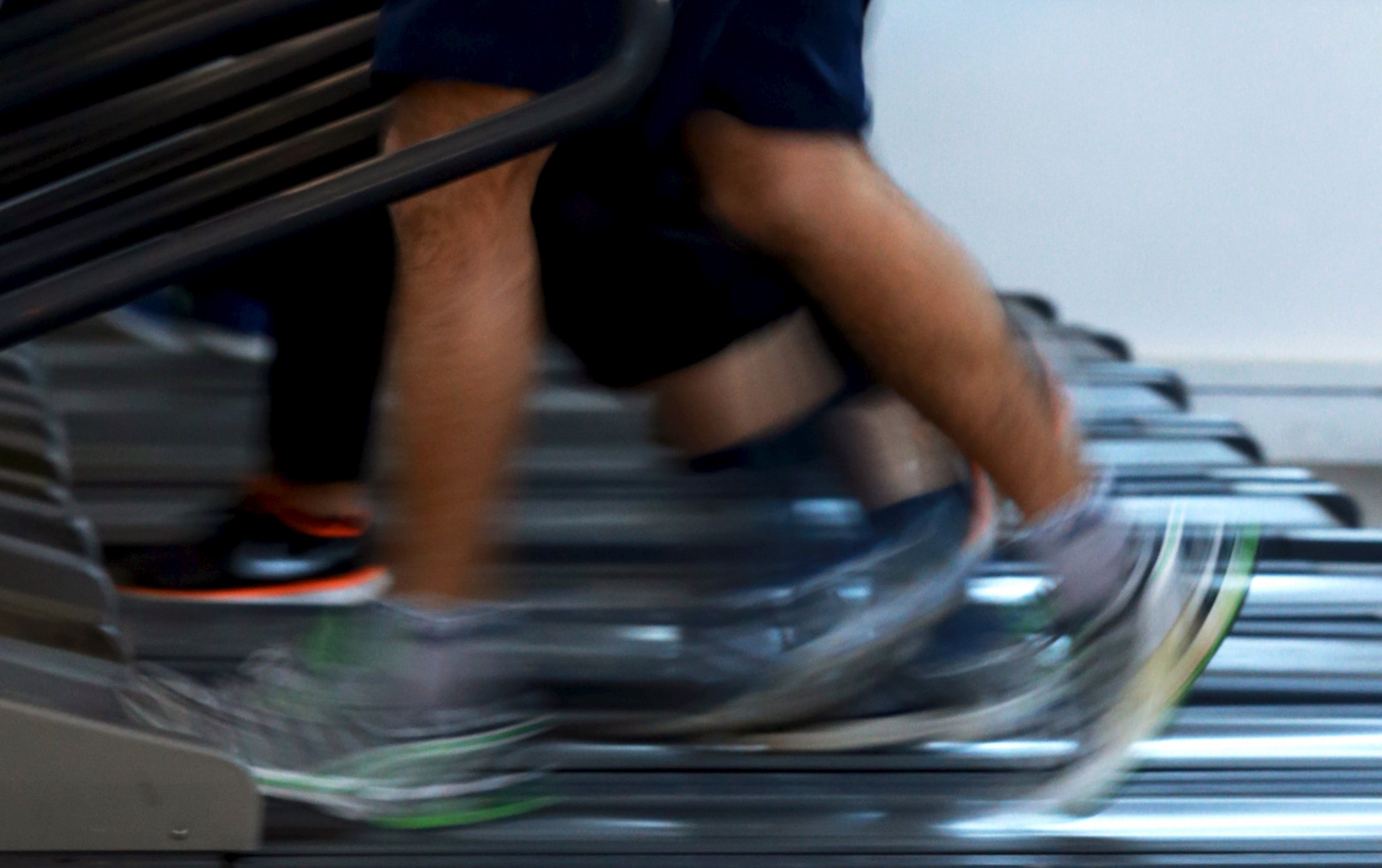
It's well known that leading a sedentary life is detrimental to long-term health and puts a person at higher risk for chronic conditions such as heart disease, diabetes and cancer. But research shows that spending more time on the couch and less time being active is also a fast-track to cognitive decline. It turns out lack of exercise may actually lead to a decrease in brain size.
A new study published Wednesday in Neurology links low levels of physical fitness in midlife to lower brain tissue volume two decades later. These findings affirm the role physical fitness plays in protecting the brain as we age.
"Brain volume is one marker of brain aging. Our brains shrink as we age, and this atrophy is related to cognitive decline and increased risk for dementia," says lead author Nicole Spartano, a trainee at the Whitaker Cardiovascular Institute at Boston University School of Medicine. "So it is important to determine the factors—especially modifiable factors, such as fitness—that contribute to brain aging."
An existing large body of research shows that improving cardiovascular health increases oxygen flow to the brain. Spartano says over time, the cumulative effects are positive for the brain's aging process.
For this latest study, researchers analyzed data on 1,583 people who took part in the Framingham Heart Study. At the start, none of the participants had dementia or heart disease. Each person took a treadmill test, then retook the test two decades later. At the follow-up, each study participant also underwent an MRI brain scan.
The researchers assessed each participant's exercise capacity by measuring the length of time they were able to run on the treadmill before their heart rate reached a certain level.
In their analysis, the researchers found that smaller brain volume correlated with lower levels of physical fitness. For every eight units lower a person scored on the treadmill test, the smaller their brain volume was two decades later. An eight-unit interval represented a reduction in brain volume that was equivalent to one year of aging.
The researcher also observed that participants who had an especially high heart rate and blood pressure during the most vigorous exercise had notably smaller brain volumes two decades later.
The study only looked at physical changes in brain volume and didn't measure rates of cognitive decline in its subjects. This is mostly because the average age of study participants was 58 when they underwent cognitive testing and brain MRI scans at their follow-ups, which means they were most likely too young to show any measurable signs of dementia. But a decrease in brain volume is a strong indicator of declining function.
This study backs up what experts have said for some time: Exercise is good for the brain. Another study published in 2014 that involved 2,747 middle-age adults found those who scored higher on memory and cognitive tests had a history of higher physical fitness 25 years earlier.
In future research, Spartano hopes to examine how changes in lifestyle, such as regular exercise, can reverse the cognitive effects of sedentary behavior. "It would be really interesting to catch-up with the same participants maybe 10 to 20 years down the line and see whether we start to see cognitive deficits in the unfit participants," she says. "We are also repeating brain MRI scans, so it will be interesting to see whether we observe changes in brain structure."
Uncommon Knowledge
Newsweek is committed to challenging conventional wisdom and finding connections in the search for common ground.
Newsweek is committed to challenging conventional wisdom and finding connections in the search for common ground.
About the writer
Jessica Firger is a staff writer at Newsweek, where she covers all things health. She previously worked as a health editor ... Read more
To read how Newsweek uses AI as a newsroom tool, Click here.








